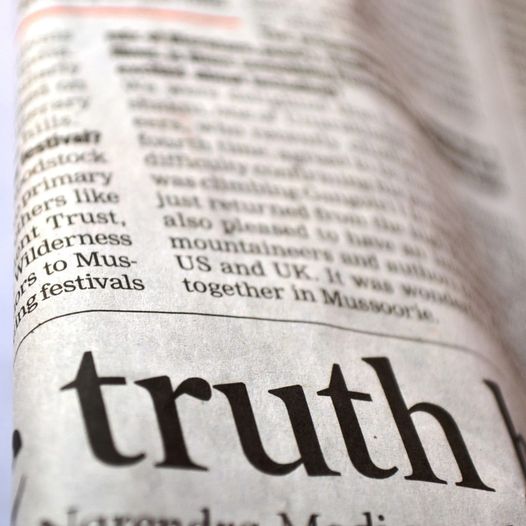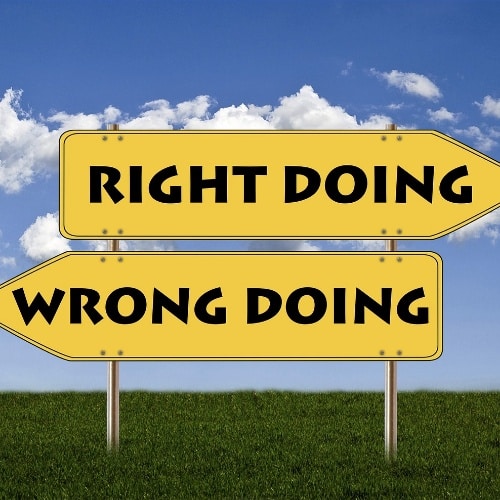Truth-telling
by Subomi Plumptre

Speaking Truth to Power
The Biblical story in Luke 4:28-29 is a cautionary tale of why people do not speak truth to power. The establishment will be so enraged, they may seek to kill you. For who are you to upset the status quo or to call out injustice? Who appointed you spokesperson or gave you a platform?
And so many Christians, myself included, simply hold their piece in the face of tyranny. We wonder whether the truth is worth dying for or if things won’t remain the same long after we’ve spoken.
But What is Truth?
In scripture, truth is rescued from human definition and becomes what God says it is. This reality is humbling. Here’s a relevant scripture:
John 3:31-34 AMP
31 He who comes from [heaven] above is above all others; he who is of the earth is from the earth and speaks [about things] of the earth [his viewpoint and experience are earthly]. He who comes from heaven is above all.
32 What He has [actually] seen and heard, of that He testifies; and yet no one accepts His testimony [as true].
33 Whoever receives His testimony has set his seal [of approval] to this: God is true [and he knows that God cannot lie].
34 For He whom God has sent speaks the words of God [proclaiming the Father’s own message]; for God gives the [gift of the] Spirit without measure [generously and boundlessly.
Defining Truth
When humans try to define truth, it is often situational, contextual and historical. It changes according to era, location and culture. And, it is limited by observation, experience, and knowledge. Sometimes, two people can look at the same thing and argue about interpretation.
This begs the question? How do Christians define truth in the face of competing interpretations too?
Perhaps it starts with willingness to subject beliefs to the basic tenets of scripture. Maybe, it is also accompanied by comfort with being wrong, and the humility to subject our views to debate and scrutiny. When we don’t know the answer, we must admit it too.
As Christians, we are lucky to be entrusted with God’s words & thoughts. We are given the privilege of channeling them to humanity when inspired by the Spirit. This is a huge responsibility.
Political Correctness
According to Oxford Languages, Political Correctness is, “conformity to prevailing liberal or radical opinion, in particular by carefully avoiding forms of expression or action that are perceived to exclude, marginalize, or insult groups of people who are socially disadvantaged or discriminated against.”
You can see how what is deemed politically correct can change from one election cycle to the next. Also, how it may muzzle the freedom of thought or expression in a bid to avoid offence or exclusion.
Polarization & My Truth
Political polarization makes things worse. According to Wikipedia, it occurs in a predominantly two-party system embodied by the tension of binary political ideologies and partisan identities.
Finally, the concept of “My Truth” adds a new dimension to the subject under discussion.
According to Google, it is a personal opinion that cannot be argued because it is the speaker’s truth. The phrase can be used to avoid arguments.
There’s also Truth Relativism, where what someone believes or feels makes a claim true or false, rather than how the world really is.
The dictionary definition of TRUTH tries to find common ground. It is defined as the body of real things, events, and facts: actuality. (Merriam-Webster) I think this is what science and reporters try to do. Present a body of evidence that has proven consistent having been observed and tested by many parties, who have nothing to gain from misrepresenting the facts.

What Truth Means to a Christian
If you are a Christian, you are bound by certain fundamentals. First, you believe God created the world and wrote its story from its foundation until the present time. You accept that he has a masterplan and that his version of events is unfolding and true.
You accept the principles documented in the Bible. Even if you struggle with the literalism, you at least concede that scripture is a barometer for testing ideologies and systems.
Being True to Yourself
Before you can speak the truth, first be true to yourself. That is because, those who are honest tend to also be the most vulnerable.
With the help of the Holy Ghost, truth-tellers have first removed the proverbial log in their eye, so they can clearly see the specks in the world.
They are filled with compassion. They address issues because they cannot imagine others suffering from what they’ve been delivered from. Thus, they lead people to truth with humility.
What is God Saying Today?
I’ve come to define standing for the truth as channeling what God is saying right now. Not just what he has said in times past but, what he says every day (and, which correlates with scripture).
Scripture captures basic principles while the Spirit of God dynamically addresses issues we face daily. Many of these items may not be literally described in the Bible. But, the principle will be there.
God has an opinion about everything and speaks to modern issues like politics, sex, business, race and injustice. But sometimes, his children limit him to spirituality, charity, and religion.
What Being a Truth-Teller Means
Invariably, being a truth-teller in the modern world amounts to this:
- Undergoing a period of self-purification where you acknowledge your limitations
- Surrendering to God and trusting him for wisdom and courage
- Speaking the mind of God on issues without fear or favour
- Bracing yourself for the consequences of standing for the truth
A World in Turmoil
As the world goes through seasons of turmoil, the church is the beacon of truth. We are non-conformists, pointing out what seems obvious, but which others have ignored or covered up.
This season requires courage. And many hearts will fail them. Should you find yourself lacking in courage, be encouraged by Martin Luther King Jnr.’s famous “Letter From Birmingham”. It was written while he was in jail for civil disobedience. I quote:
“Yes, I love the church. How could I do otherwise? I am in the rather unique position of being the son, the grandson and the great grandson of preachers. Yes, I see the church as the body of Christ. But, oh! How we have blemished and scarred that body through social neglect and through fear of being nonconformists.
There was a time when the church was very powerful—in the time when the early Christians rejoiced at being deemed worthy to suffer for what they believed. In those days the church was not merely a thermometer that recorded the ideas and principles of popular opinion; it was a thermostat that transformed the mores of society. Whenever the early Christians entered a town, the people in power became disturbed and immediately sought to convict the Christians for being “disturbers of the peace” and “outside agitators.”‘
But the Christians pressed on, in the conviction that they were “a colony of heaven,” called to obey God rather than man. Small in number, they were big in commitment. They were too God-intoxicated to be “astronomically intimidated.” By their effort and example they brought an end to such ancient evils as infanticide and gladiatorial contests. Things are different now. So often the contemporary church is a weak, ineffectual voice with an uncertain sound. So often it is an archdefender of the status quo. Far from being disturbed by the presence of the church, the power structure of the average community is consoled by the church’s silent—and often even vocal—sanction of things as they are.”
Thank you for reading.
For more, read Bible study


